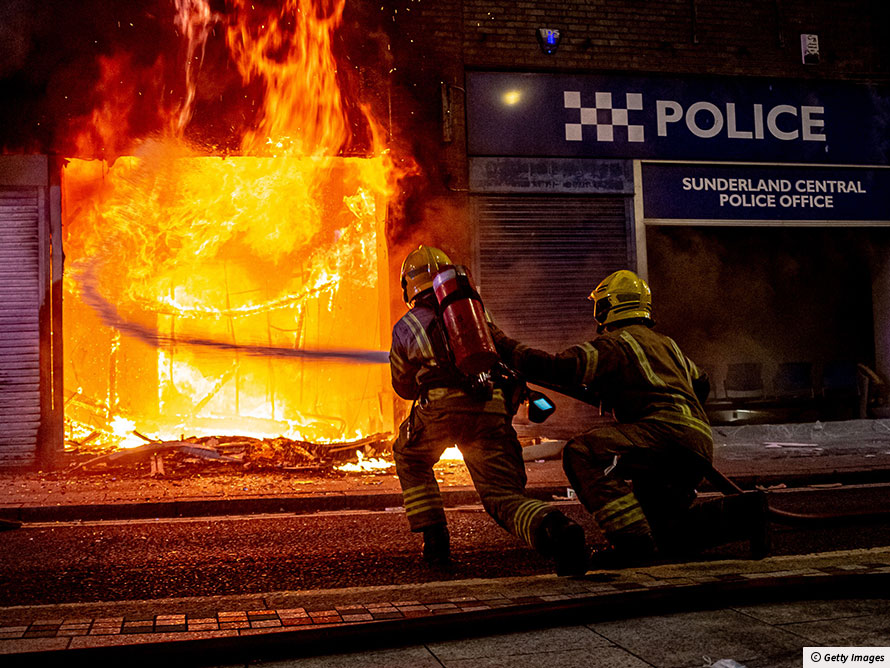Is this terrorism? Days of riots have targeted mosques and refugees. But there is little agreement on how we should describe the terrible violence.
Fear on the streets as UK riots grow
 Crisis: The Prime Minister called an emergency meeting yesterday in response to a sixth day of escalating violence across Britain, following the fatal stabbing of three young girls in Southport last week.
Crisis: The Prime Minister called an emergency meeting yesterday in response to a sixth day of escalating violence across Britain, following the fatal stabbing of three young girls in Southport last week. Glossary
Asylum seekers - People who have left their countries due to danger and are seeking refuge elsewhere.
Far-right - A range of ideologies that emphasise social order, racial purity and the elimination of opponents.
Racist - Believing that a person's skin colour makes them better than others.
Immigration - The permanent movement of people into a country.
Southport - A seaside town on the northwest coast of England.
Extreme - Very great, or beyond what is expected.
IRA - The Irish Republican Army, or IRA, was an unofficial military organization made up of people who wanted an end to British rule in Northern Ireland.
Islamist - An advocate of Islamic fundamentalism. Often used in the West to describe those who believe in imposing Sharia (Islamic law) on societies.
Middle East - The lands around the east of the Mediterranean Sea and Arabia.
Pogroms - Organised massacres of a particular ethnic groups, such as those of Jewish people in Russia and Eastern Europe in the late 19th and early 20th centuries.
Ethnic minorities - Groups within a community with different cultural or national traditions to the majority of the population.
Protestants - A group of Christians. Protestants separated from the Roman Catholic Church in the 16th Century. This took place at first in Germany.
Catholics - Followers of the Catholic church, a Christian denomination with over a billion followers worldwide, led by the Pope.
Conflict - A state of disagreement when there is a difference of interests, values or goals.
